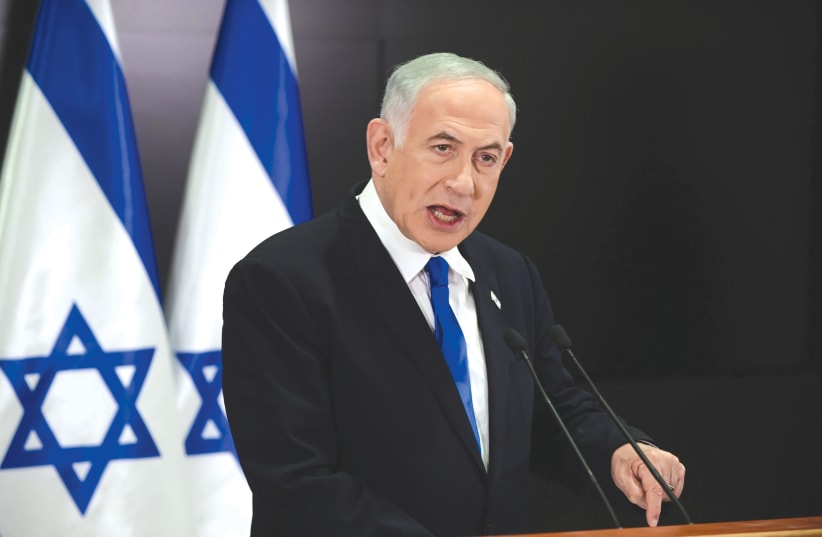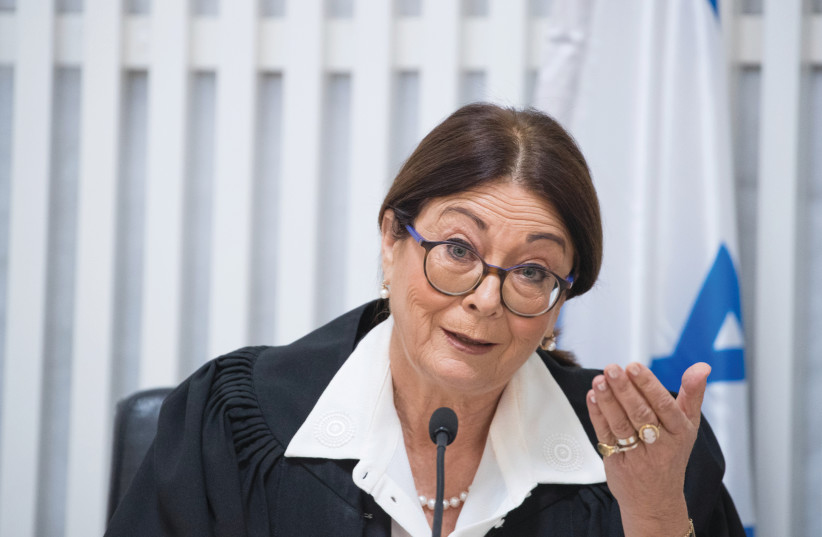Prime Minister Benjamin Netanyahu insisted that he would work to create a balance between the judiciary and the Knesset without giving the legislature unrestricted power, in an interview with CNN on Sunday.
"One thing I'll guarantee to you is that at the end of this process, Israel that was is a democracy, is a democracy will remain as robust a democracy and you can see that from the fact that hundreds of thousands of people are demonstrating for or against this judicial reform in peaceful demonstrations...and when you have that, it's not a sign of the collapse of democracy, it's a sign of the robustness of the public debate, which I'm working to resolve with as broad of a consensus as I can," said Netanyahu.
CNN's Fareed Zakaria responded by asking the prime minister if he would be willing to compromise on the main features of the reform, noting that in Israel, the only check and balance on the government and Knesset is the High Court of Justice, as Israel does not have a constitution, state governments or a bicameral legislature like other countries.
Netanyahu claimed that there is "a lot of hype" around the details of the reform and added that he now believes that his supporters and allies understand that the imbalance of power cannot just be shifted from the judiciary to the legislature.
The prime minister rejected the possibility of decisions of the High Court being overridden by a simple majority of the Knesset in the CNN interview, saying "Israel has been thrown off balance. The big challenge is to bring it back to a balance that is accepted in most democracies between the three branches of government without going to a side that would remove checks and balances on the power of the majority."
Up until the reform was frozen, the government was advancing an "Override Clause" which would allow 61 members of Knesset to overrule decisions by the High Court concerning legislation, as well as laws that would ban the High Court from ruling on Basic Laws and administrative appointments. Basic Laws in Israel can be passed with a regular majority, not even requiring 61 members of the Knesset to support them.
In response to a question about concerns that hi-tech entrepreneurs would leave Israel if the judicial reform goes through, Netanyahu answered that he doesn't think there's a reason for concern, reiterating that the independence of the judiciary will not be compromised and the future of Israel's economy will be secure.
Netanyahu remains hopeful for normalization with Saudi Arabia
Netanyahu additionally referred to concerns that a recent spike in tensions between Israel and the Palestinians would impact efforts to normalize relations with Saudi Arabia, stating that he believes it is still possible to reach an agreement with the Kingdom.
"I am saying now, peace with the major Arab countries is not only possible, I think it's likely and I'm doing everything I can, not everything is above the surface, to advance it. It will end the Arab-Israeli conflict and will advance the solution of the Palestinian-Israeli conflict."
In reference to statements by US President Joe Biden against the judicial reform, Netanyahu stressed that the relationship with the president and with politicians from both sides of the aisle in the US is still strong, noting recent visits from a number of Congress leaders to Israel.
Netanyahu also spoke about his opposition to the JCPOA nuclear agreement, insisting that his opposition to the agreement, along with other actions, slowed Iran's path to a nuclear weapon. The prime minister added that the deal that was being discussed between Iran and the world powers would have "paved the way with gold" for Iran to enrich enough uranium, develop a nuclear warhead and develop missiles to carry such a warhead.
"The only way that you can stop them is with a credible military threat," stressed Netanyahu.

